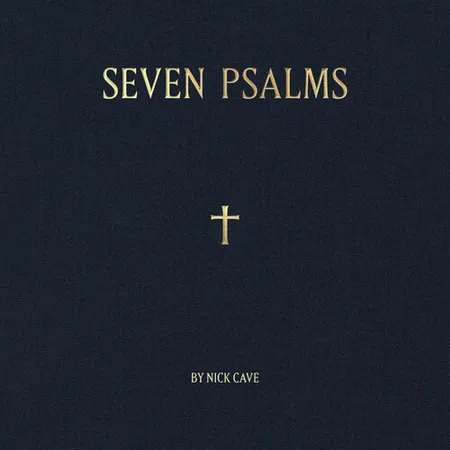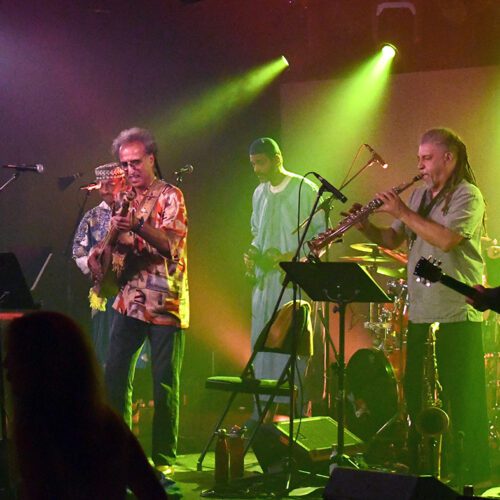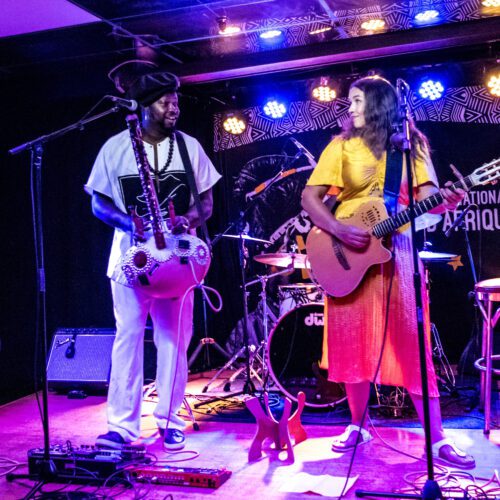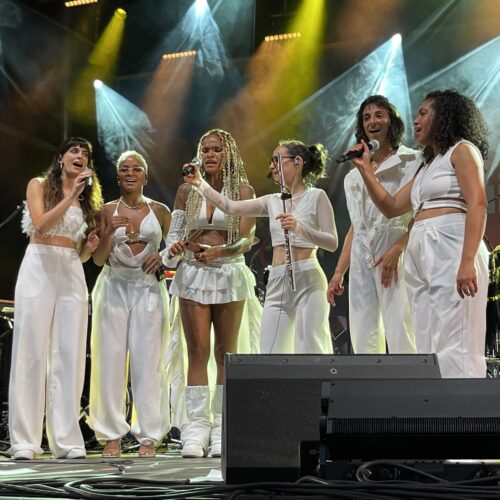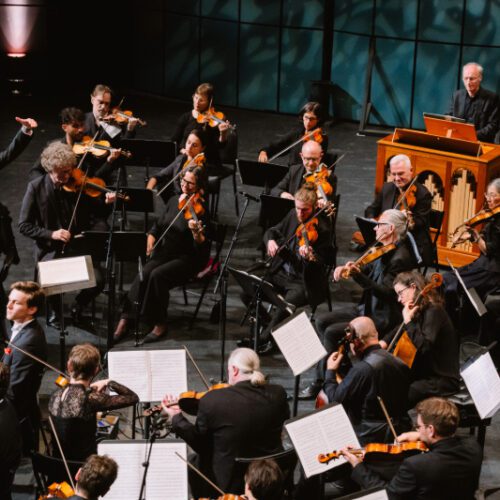T.S. Eliot once wrote that to make an end is to make a beginning. That the end is where we start from. So, here I am, present-day, listening to Nick Cave’s Seven Psalms. The timeline only stretches this far. This is the end. This is where I begin. I’d been told, for years, from voices outside and within, that I should be listening to Nick Cave. People (myself included) have been shocked and dismayed to learn that I had never really listened to his records, especially considering the other artists and other kinds of music, performance, and writing I gravitate towards. Somehow his catalog always eluded me. And then, finally, The Fates conspired and set me on the path.
“While in lockdown I wrote a number of psalms,” says Cave. “The Seven Psalms are presented as one long meditation—on faith, rage, love, grief, mercy, sex, and praise. A veiled contemplative offering borne of an uncertain time.”
I’m not a religious man. But religious or not, who among us couldn’t relate to those feelings and the need to meditate. If a psalm is a song to worship and communicate with God, then I believe these psalms also speak to the god within that we need to connect and reflect with. Each spoken-word track on Side A is under two minutes, perfect for a continuous listen. Or a quick one-a-day, for a week, meditation. And perfect, also, if technology and social media have whittled your attention span down to the nub.
Though each piece is short, they’re also incredibly dense with poetic imagery. Crystal pianos playing dreadful, days break like waves on the shore. A stag, triumphant on a hill. A swallow nesting her young in an oak. Seven Psalms begs for multiple listens. Close your eyes, and let the sounds envelop you. Let his voice carry you away, and somehow anchor you deeper within at the same time. The track, “Have Mercy on Me” is particularly poignant.
“Have mercy on me lord, I have done wrong…
I have eaten the children,
Rained fire upon the old,
Dashed the newborn dead on the rocks,
Plagued the cities,
Thrown families to the cold,
And turned backwards all the advancing clocks.”
Great art sometimes holds up a mirror to society, the world, or whoever stands in front of it. Other times it holds a mirror up at its creator. Seven Psalms does both. Nick Cave has given us much to reflect upon. I write this as the final song and only track on Side B, plays. “Psalm Instrumental,” a 12-minute sonic landscape painted by Cave’s long-time collaborator, Warren Ellis. There’s a choir, a low drone, a few gentle notes on a piano, and Nick Cave’s voice emerging mid-way. The
instrumental evokes the feeling of walking into an old, Gothic church. As cold, eerie statues, and the haunting faces of stone angels and demons, look down on you. Rain hitting stained glass; it’s as if those saints were crying.
“We shall not cease from exploration,” continues T.S. Eliot. “And the end of all our exploring will be to arrive where we started and knowing the place for the first time.”
And now, here I am on this path, with all its records, books, and performances; with all its beginnings and ends still to discover. A path that moves the timeline forward; beyond the last two years, on a wing and a prayer. A path that, in all likelihood, comes right back to Seven Psalms.
